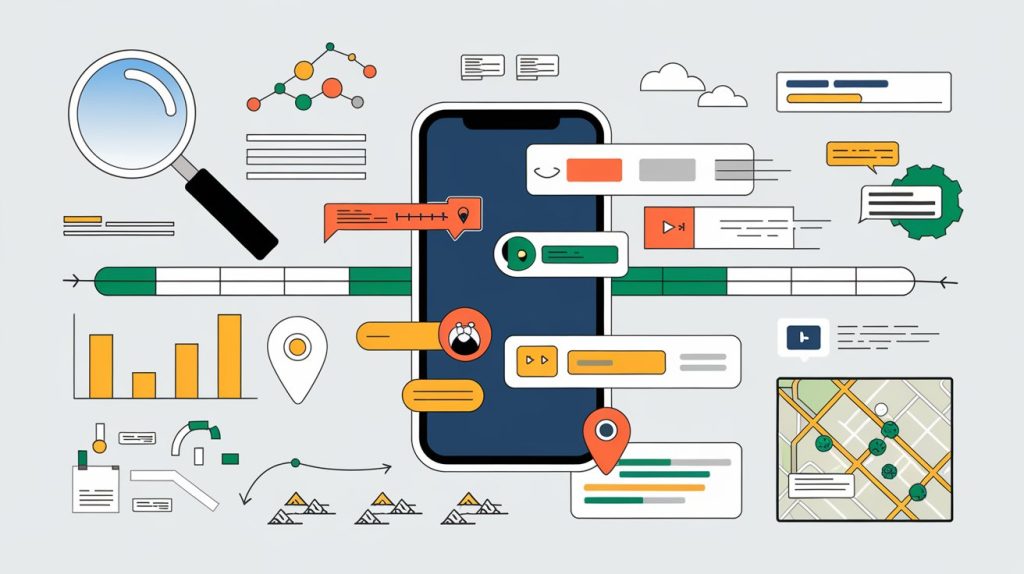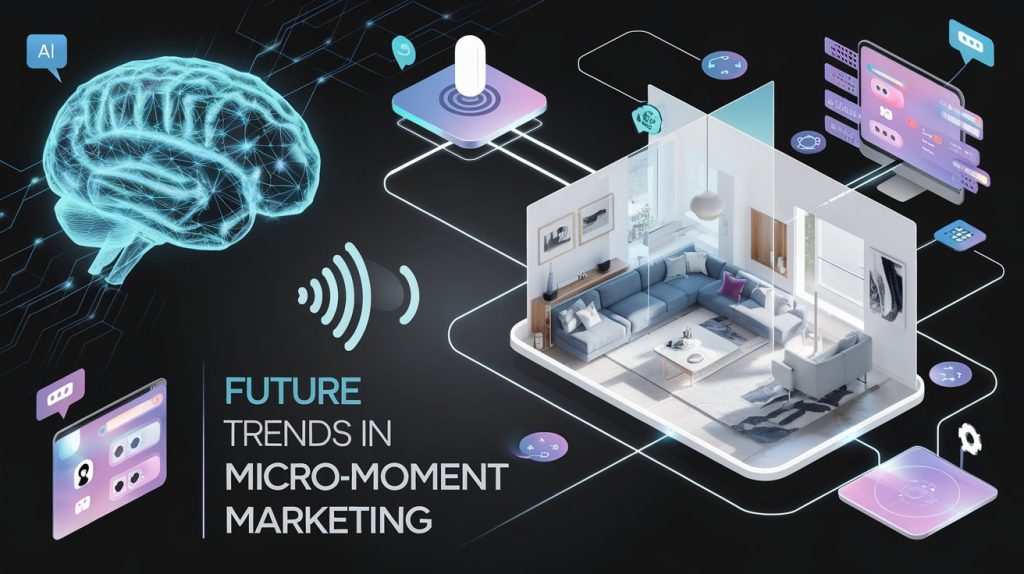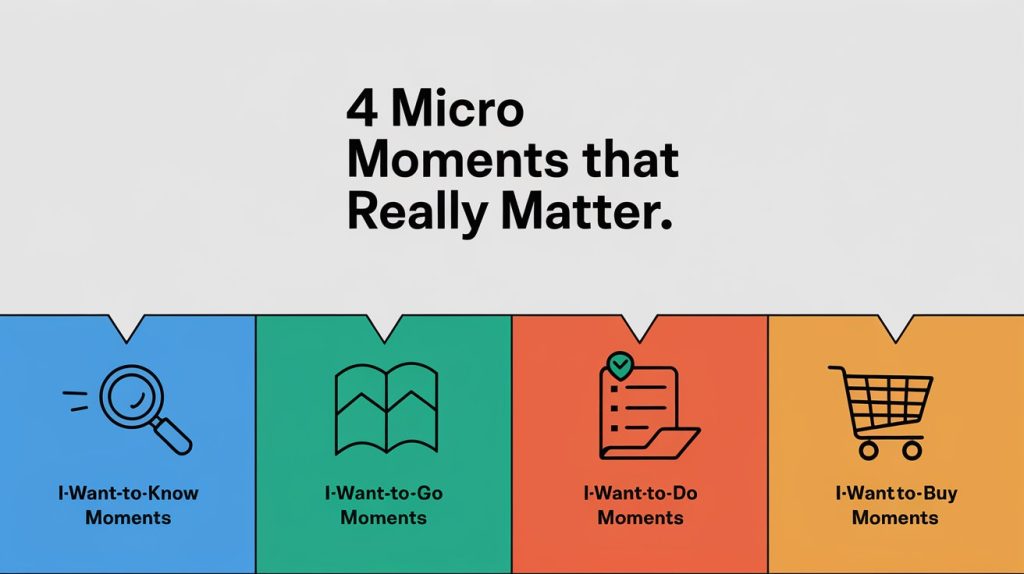In today’s fast-paced digital landscape, consumer behavior has evolved significantly. Smartphones have become indispensable, granting immediate access to information and facilitating spontaneous decision-making. This evolution has introduced a pivotal marketing concept: micro-moments. These intent-driven, real-time interactions are critical junctures where decisions are made, preferences are shaped, and loyalties are established. Brands that adeptly navigate micro-moment marketing can gain a competitive advantage by engaging consumers precisely when it matters most.
Effectively capitalizing on these fleeting opportunities requires strategic tools. In-app messaging, when combined with a comprehensive understanding of micro-moments, offers a transformative approach for CRM marketers aiming to boost user engagement and retention.
Understanding Micro-Moments
Micro-moments, a concept introduced by Google, refer to brief yet impactful instances when individuals turn to their devices to address immediate needs. These moments are rich in intent and can be categorized into four primary types:
- I-want-to-know moments: Occasions when users seek information or insights about a topic, product, or service.
- I-want-to-go moments: Instances where users search for directions, local businesses, or store hours.
- I-want-to-do moments: Times when users require assistance or guidance to complete a task.
- I-want-to-buy moments: Situations where users are prepared to make a purchase and are exploring the best options.
Grasping these moments is essential for marketers striving to meet consumer needs precisely at the point of intent. By strategically addressing these instances, brands can significantly influence consumer decisions and secure a competitive edge.
The Role of In-App Messaging in Addressing Micro-Moments
In-app messaging is uniquely positioned to effectively engage users during micro-moments. As an integral component of the mobile experience, in-app messages enable brands to deliver timely, contextually relevant content directly to their audience, ensuring users receive value without unnecessary interruptions.
Capturing User Attention
In today’s attention-deficit economy, brands must be strategic to capture user attention. By leveraging in-app messages during micro-moments, businesses can:
- Provide solutions during I-want-to-know moments by offering quick access to FAQs or product details.
- Address I-want-to-go moments with personalized, location-based recommendations.
- Enhance I-want-to-do moments by sharing instructional content or tutorials.
- Capitalize on I-want-to-buy moments with exclusive offers or streamlined checkout prompts.
Enhancing User Retention
Micro-moments are not solely about immediate conversions; they are pivotal for building long-term customer relationships. Effective in-app messaging strategies ensure users feel valued and understood, leading to higher retention rates. For example:
- Personalized recommendations based on past behavior demonstrate that customer preferences are recognized.
- Timely updates, such as reminders for items left in a cart, encourage users to complete actions without feeling pressured.
- Proactive engagement, such as celebrating user milestones, fosters emotional connections with the brand.
Driving Action with Contextual Relevance
The success of in-app messaging during micro-moments hinges on context. For instance, if a user searches for travel destinations within an app, a message offering flight deals or local guides adds immediate value. Brands that master contextual relevance can significantly boost engagement and conversions.

Strategies for Leveraging Micro-Moments with In-App Messaging
To excel in micro-moment marketing, businesses need a well-conceived approach that blends data insights, creativity, and technology. Here are actionable strategies:
Understand and Map User Micro-Moments
Identifying the micro-moments that matter most to your audience is the first step. Utilize tools like Google Analytics, heatmaps, and user surveys to uncover:
- The key questions your audience poses.
- The triggers that lead them to your app.
- The barriers prevent them from taking action.
For example, a fitness app might identify I-want-to-do moments when users seek workout tutorials. Mapping these moments enables the app to deliver instructional videos through in-app messaging at the optimal time.
Optimize for Mobile Experiences
Since micro-moments predominantly occur on mobile devices, a better user experience is crucial. Key considerations include:
- Speed: Ensure your app loads swiftly, as delays can lead to user abandonment.
- Accessibility: Design intuitive navigation with clear calls-to-action.
- Personalization: Leverage data to tailor content based on user preferences.
Create Targeted, Bite-Sized Content
Micro-moments demand content that is concise and directly addresses user needs. Consider the following formats:
- Short videos: Ideal for quick tutorials or product demonstrations.
- Interactive elements: Incorporate polls or quizzes to engage users.
- Push notifications: Complement in-app messages with alerts that re-engage users.
Leverage Location-Based Messaging
Location-based marketing is particularly effective during I-want-to-go moments. Ensure your app integrates GPS capabilities to:
- Notify users of nearby stores or events.
- Provide location-specific promotions.
- Offer real-time updates, such as wait times or availability.
Measure, Analyze, and Adapt
Continuous improvement is vital. Utilize analytics tools to track the performance of your in-app messaging campaigns:
- Engagement rates: Frequency of user interactions with your messages.
- Conversion rates: Percentage of users who take the desired action.
- Retention metrics: Impact of in-app messages on user loyalty over time.
Based on the data, refine your strategies to better align with user needs and preferences.
Case Studies: Brands Excelling with Micro-Moments
Domino’s: Streamlining the Buying Process
Domino’s leveraged in-app messaging to simplify the pizza ordering experience during I-want-to-buy moments. By reducing the steps required to place an order, the company saw a significant increase in mobile sales. As of 2023, Domino’s total sales in some regions came through digital channels (Think with Google, n.d.; Domino’s, 2024). Domino’s also enhanced the user experience by integrating voice ordering and AI-driven recommendations, addressing customer needs in real time (Domino’s, 2024).
Hyundai: Enhancing Pre-Purchase Research
Hyundai recognized the importance of I-want-to-know moments for potential car buyers. By integrating in-app messaging into their mobile platforms, they provided users with transparent pricing information and convenient test drive scheduling. This approach led to increase in dealership visits and improved overall customer satisfaction (WebFX, n.d.; Insider, n.d.).
Sephora: Supporting In-Store and Online Experiences
Sephora’s app addresses I-want-to-go moments by offering real-time inventory updates and personalized recommendations. For users browsing products in-store, the app complements the experience with virtual try-ons and product reviews, boosting both in-store and online sales (BrightEdge, 2017).
Nike: Encouraging Fitness Goals
Nike capitalized on I-want-to-do moments by using in-app messaging to inspire users to meet their fitness objectives. Push notifications with motivational tips and rewards for hitting milestones significantly increased app engagement (Medium, 2024).

Future Trends in Micro-Moment Marketing
As consumer behavior evolves, so do the opportunities to address micro-moments effectively. Here are emerging trends shaping the future of micro-moment marketing:
Predictive Micro-Moment Targeting
Leveraging AI and machine learning, brands can anticipate user needs and proactively deliver relevant content. For instance, travel apps may predict when users are likely to plan trips based on browsing history and seasonal trends, delivering in-app messages with exclusive deals (Gartner, 2023; Think with Google, n.d.).
Voice Search Optimization
With the rise of voice-activated devices, brands will need to optimize content for voice-driven micro-moments. For example, quick answers to common questions or product availability can be integrated into voice search responses, enhancing user satisfaction and engagement (Think with Google, n.d.; Medium, 2024).
Augmented Reality Integration
AR technologies will allow brands to create immersive experiences during micro-moments. Retail apps could use AR to let customers virtually try products or see how furniture fits in their space, enriching I-want-to-buy moments (Imaginovation, 2024; BrightEdge, 2017).
Hyper-Personalization
Advanced data analytics will enable brands to customize in-app messages down to individual preferences, ensuring that each message resonates with the recipient. For instance, streaming services could recommend new shows based on real-time viewing habits (BrightEdge, 2017; Gartner, 2023).
Better Omnichannel Experiences
Consumers expect a cohesive experience across platforms. Brands that integrate their apps with other touchpoints-such as social media, websites, and physical stores-will provide a seamless journey that enhances user retention (Enterprise Nation, 2023; WebFX, n.d.).
Actionable Tips for CRM Marketers
- Combine Data Sources: Use CRM data, app analytics, and customer feedback to map micro-moments accurately.
- Automate Messaging: Leverage tools that allow real-time responses to user actions, ensuring you capture intent immediately.
- Invest in Technology: Adopt AI-driven solutions for predictive targeting and personalized content delivery.
- Focus on Usability: Simplify app navigation and design for faster access to key features.
- Iterate and Improve: Regularly analyze performance metrics to refine your strategies and improve user retention rates.
The Bottom Line
Micro-moments have revolutionized how brands interact with consumers, offering unparalleled opportunities to build connections in real-time. By integrating in-app messaging into their marketing strategies, businesses can engage users meaningfully during these crucial moments, driving both engagement and retention. CRM marketers must embrace these intent-rich moments as the foundation of their strategies. By staying ahead of trends like predictive targeting and AR integration, and by focusing on creating seamless, personalized experiences, brands can thrive in the ever-evolving digital landscape.
The key to success lies in understanding your audience’s needs, delivering the right message at the right time, and continuously adapting to new technologies. Those who seize the power of micro-moments will be best positioned to achieve sustainable growth and customer loyalty in the years to come.
